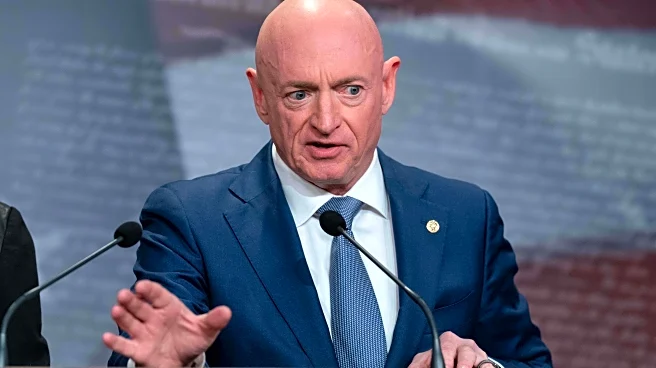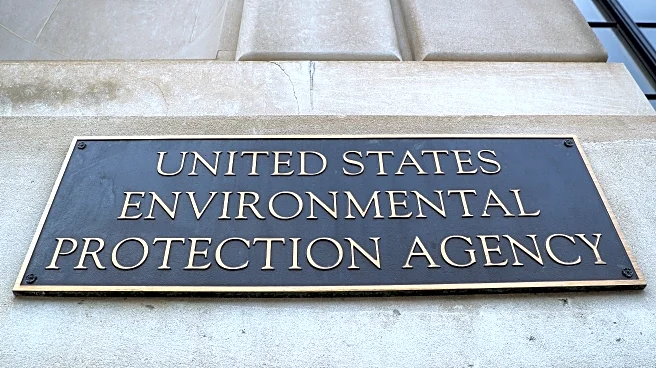Rapid Read • 8 min read
Gen. David Allvin, the U.S. Air Force Chief of Staff, has announced his early retirement, effective November, halfway through his four-year term. This decision follows Defense Secretary Pete Hegseth's plan to remove him from his position, as reported by a source familiar with the situation. The Air Force released a statement confirming Allvin's retirement but did not provide specific reasons for his departure. Allvin expressed gratitude for his role and the support from Secretary Meink, Secretary Hegseth, and President Trump. His retirement marks the fourth senior military official departure since President Trump's second term began, following the removal of other high-ranking officers such as Coast Guard Commandant Adm. Linda Fagan and Gen. C.Q. Brown.
AD
The early retirement of Gen. David Allvin highlights ongoing changes within the Pentagon under President Trump's administration. Such shake-ups can impact military leadership stability and strategic direction, potentially affecting U.S. defense policies and operations. The removal of multiple senior officers may lead to shifts in military priorities and influence the morale and effectiveness of the armed forces. These changes could also affect the U.S.'s ability to respond to international challenges and maintain its defense commitments globally. Stakeholders, including military personnel and defense contractors, may face uncertainty as new leadership takes charge.
With Gen. Allvin's retirement, the Air Force will need to appoint a new Chief of Staff, which could lead to further strategic and operational adjustments. The Pentagon may continue to experience leadership changes, influencing defense policy and military readiness. Observers will be watching for any shifts in military strategy or priorities under new leadership. The broader implications for U.S. defense policy and international relations will depend on how these changes are managed and communicated by the administration.
The frequent turnover of senior military officials raises questions about the administration's approach to military leadership and its long-term impact on U.S. defense capabilities. Ethical considerations regarding the politicization of military appointments may arise, as well as concerns about maintaining a non-partisan military. The cultural and institutional stability of the armed forces could be challenged by these rapid changes, affecting the trust and cohesion within the military ranks.
AD
More Stories You Might Enjoy











